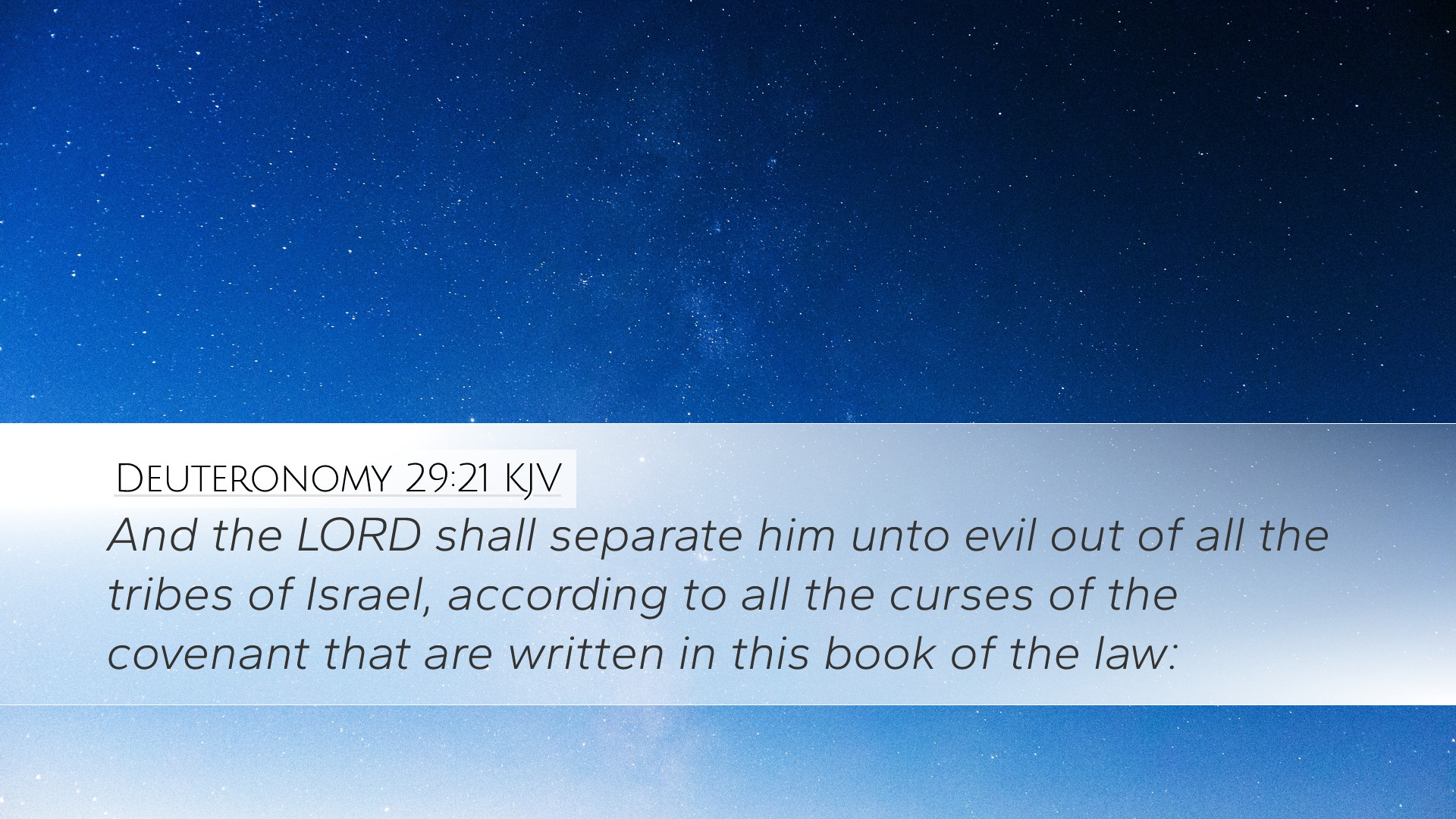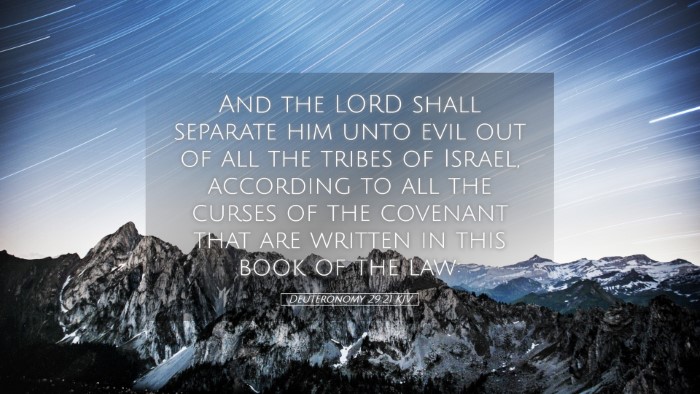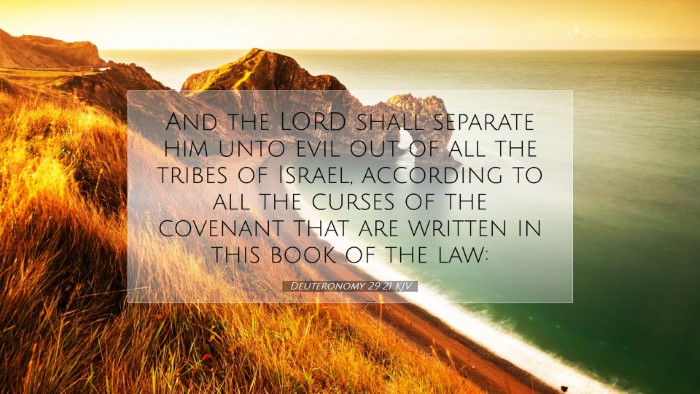Deuteronomy 29:21 - Commentary
Bible Verse: "And the LORD shall separate him unto evil out of all the tribes of Israel, according to all the curses of the covenant that are written in this book."
Introduction
This verse serves as a solemn depiction of the seriousness of the covenant between God and His people. It emphasizes the dire consequences that arise from disobedience to God's commands. In the broader context of Deuteronomy, Moses is reiterating the covenant's stipulations and the blessings and curses that will result from Israel's loyalty or infidelity to God.
Contextual Analysis
In examining Deuteronomy 29:21, it is crucial to understand it within the framework of the covenant made at Moab. Moses speaks to the Israelites on the brink of entering the Promised Land, reminding them of their obligations. The verse encapsulates a warning about the significance of adherence to God’s laws and the implications of transgression, reflecting God's character as just and holy.
Moses' Role as Mediator
Moses acts as an intercessor between God and the Israelites. He is charged with imparting both warnings and encouragements, ensuring the people understand the consequences of their choices. Matthew Henry elucidates that the severity of God's judgment can be seen as a means of producing a wholesome fear among the people, intended to foster a moral and faithful community.
The Nature of Divine Judgment
Deuteronomy 29:21 signifies that divine judgment is a serious matter. Adam Clarke remarks on the gravity of being "separated unto evil," emphasizing that such separation is not random but follows a deliberate choice of the people to forsake their covenant with God.
The Concept of Evil in Scripture
The term "evil" encompasses a broad range of consequences, including physical calamities, social discord, and ultimately, spiritual separation from God. It is essential to grasp that evil, in this context, is not merely the absence of good but rather an active force against God’s intentions for His creation.
Curses of the Covenant
Central to the message of Deuteronomy are the blessings and curses tied to the covenant. Albert Barnes organizes these in his commentary by detailing how the covenant brings about both blessings for obedience and curses for disobedience, as laid out in the earlier chapters of Deuteronomy.
The Repercussions of Disobedience
This verse exemplifies that consequences are not arbitrary. They flow from a relationship with God, where faithfulness brings life and favor, while betrayal leads to curses and destruction. The specificity of curses illustrates God's justice, indicating that every action has repercussions within the framework of His covenant.
The Role of Remembrance
The Israelites are implored to remember the history of their relationship with God, the deliverance from Egypt, and their covenant obligations. Clarke asserts that remembering these events is key to remaining faithful. Forgetting God’s past workings leads to rebellion against His current commands.
Implications for Today
For modern readers, Deuteronomy 29:21 serves as a powerful reminder of the ongoing need for faithfulness in our covenant relationship with God through Christ. It highlights the importance of heeding God's warnings and the transformative power of repentance in the face of sin.
Theology of Separation
Moreover, the notion of being "separated unto evil" can be examined through the lens of New Testament teachings, where the call to holiness involves separating oneself from worldly influences that lead one away from God. The call to holiness is underscored by the completion of Jesus's work, which fulfills the law and provides the possibility for forgiveness and restoration.
Conclusion
In summary, Deuteronomy 29:21 encapsulates a profound spiritual truth relevant across centuries—faithfulness to God's covenant brings prosperity and life, while neglect and rebellion invite judgment and separation. This commentary, derived from respected biblical scholars, emphasizes the necessity for believers to remain vigilant and faithful, ever mindful of the weighty implications that our choices bear on our relationship with a holy God.


